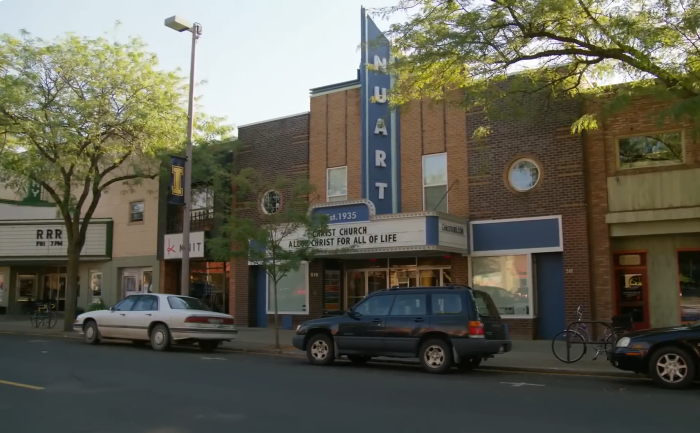
The U.S. Department of Justice has filed a lawsuit accusing the City of Troy in Idaho of religious discrimination after town officials denied an application from the nearby Moscow-based Christ Church for a conditional use permit that would allow the church to hold services in the city of just under 950 people.
In a 19-page complaint filed Tuesday in the U.S. District Court for the District of Idaho, the department argues that officials in Troy violated the Religious Land Use and Institutionalized Persons Act when they denied Christ Church’s conditional use permit application that would allow the growing congregation to worship at a location city’s C-1 zoning district.
“The church has a fast-growing congregation and has sought to accommodate this growth by holding services at additional locations in the area. At present, Christ Church’s congregation is too large to hold services at any one location, and the church has had to establish several new locations for services in Moscow,” the filing states.
“As part of this expansion effort, Christ Church sought to find an appropriate facility for Sunday services in Troy, which is a close neighbor to Moscow. Historically, congregants residing in Troy have commuted from Troy to Moscow to attend the church’s services, but desire to have worship services in Troy.”
Though the city already allows non-religious assemblies in the C-1 zoning district, such as clubs, museums, auditoriums and art galleries, the DOJ alleges that Christ Church’s permit was denied because of public animus towards the church’s religious beliefs, which is a violation of RLUIPA.
In one written comment opposing the church worshiping in Troy, a critic noted: “I do not want Christ Church to be allowed to destroy another Idaho town. They are evil people spreading evil beliefs.”
“RLUIPA unequivocally forbids local governments from deciding zoning matters based on their dislike of certain religious groups,” Assistant Attorney General Harmeet K. Dhillon of the Justice Department’s Civil Rights Division said in a statement.
“The Department of Justice will not hesitate to file suit against jurisdictions that discriminate in land use matters on the basis of the applicants’ religious beliefs.”
Troy officials did not immediately respond to a request for comment from The Christian Post on Friday.
Christ Church, led by Senior Pastor Douglas Wilson, has made many headlines in the past due to their practice and advocacy for traditional Christian values.
The church has proudly defended its ambition to make Moscow, a city of just under 27,000 people that is home to the University of Idaho, “a Christian town.”
“Our mission at Christ Church is summed up by the phrase ‘all of Christ for all of life,'” the church noted.
“Under the grace of God, this means that our desire is to make Moscow a Christian town through faithful and robust covenant renewal worship on the Lord’s Day, through proclamation of the gospel to unbelievers, while training additional evangelists who will continue proclaiming that gospel, through teaching men and women how to live together in harmonious Christian marriage, through establishing a family-friendly culture of Christian education.”
In September 2022, the church rented a local bar in downtown Troy to hold Sunday services for about 60 residents of Troy. Two services were held there without incident. But on Oct. 5, 2022, the city’s attorney sent a cease-and-desist order to the bar’s owner stating that the bar could not be used for church services because a conditional use permit was required for a church to operate in a commercial zoning district.
“Christ Church made a substantial effort to find a suitable location for its Sunday services. On various occasions, the church reached out to other facilities in Troy to explore renting space for Sunday services, including a local public school, but those requests were rebuffed. The church also considered building a facility outside of town, but did not have enough capital for such a project,” the lawsuit stated.
In November 2022, a parish elder purchased a former bank building on Main Street in Troy’s business district. The plan was to convert half of the property into an event space that could be used for church services. In January 2023, the church entered into a leasing agreement. The church and the elder engaged in efforts to seek a conditional use permit from the city, but their application was denied in March 2023.
“The written decision stated that the church ‘did not enhance the commercial district’ and that the religious use was ‘not in harmony with the Comprehensive Plan,'” the DOJ lawsuit states.
In April, the DOJ filed a statement of interest in support of a similar religious discrimination lawsuit filed by former Southern Baptist Convention President J.D. Greear’s The Summit Church in North Carolina against the Chatham County Board of Commissioners.
In their lawsuit, Summit Church alleges that members of the county board unlawfully rejected its application to rezone nearly 100 acres of land to house its Chapel Hill campus. The church contends the board’s decision violated its “civil rights as enshrined in the First and Fourteenth Amendments to the United States Constitution and codified in the Religious Land Use and Institutionalized Persons Act.”
Contact: leonardo.blair@christianpost.com Follow Leonardo Blair on Twitter: @leoblair Follow Leonardo Blair on Facebook: LeoBlairChristianPost
















